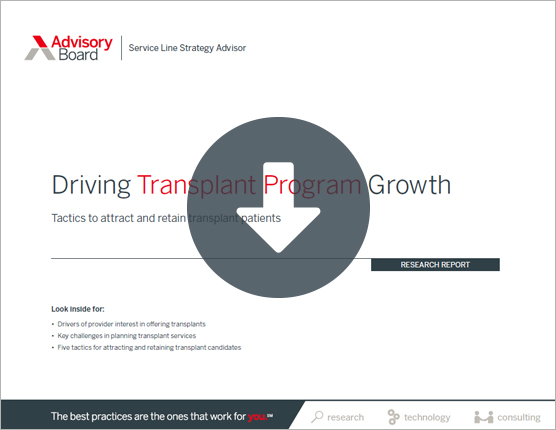Auto logout in seconds.
Continue LogoutHospitals across the country are hosting "honor walks" to recognize dying patients whose organs will be donated to save other lives—a ritual that recently was adapted for an episode of "Grey's Anatomy," Tim Lahey, an infectious disease specialist and director of clinical ethics at the University of Vermont Medical Center, writes for the New York Times' "Well."
Get 4 strategies to transform the end-of-life care experience
Inside the ritual
"The honor walk takes place at an odd pause between life and death: Either brain death has been declared already in a donor whose heart still beats, or the donor's heart will soon stop beating," Lahey writes.
The ritual is held with the consent of the patient's loved ones as the patient is wheeled from their hospital room to the OR, where the organ donation process will take place.
Lahey describes a recent honor walk at University of Vermont Medical Center. The hallway from the intensive care unit to the OR was "crowded with dozens of hospital employees" who'd come to honor the patient on the bed, as well as her parents, who were walking behind her. "There were white coats and ties, crumpled blue scrubs … expensive pinstripe suits," and "[a] priest who wore a neon pink Hawaiian shirt over his clerical collar," he writes.
While "[m]ost beds roll out of the ICU briskly, en route to radiology or an operating room, whirring with the beeps and blinks of monitors and the quick conversation of busy nurses," Lahey writes that this bed "moved at a stately pace." There was no "chitchat" amongst the nurses.
"An honor walk is a powerful act of community," Lahey writes. "Something solemn, even sacred, happens in those 15 minutes in the hallway. We wait and talk with people from all professions and all walks of life. Together, we honor a great sacrifice. We give thanks. We hope to help a grieving family in a moment of fathomless loss."
How the honor walk began and spread
Vermont University Medical Center got the idea for honor walks from Jennifer DeMaroney, an organ donation coordinator, who saw a photograph of another hospital performing the ritual. When DeMaroney asked Eileen Whalen, president of the hospital, if the hospital staff could start doing the same thing, Whalen approved it "on the spot," Lahey writes.
Missy Holliday—organ operations director at LifeCenter in Cincinnati, which staged an honor walk that went viral on social media—said LifeCenter began the ritual in December 2017, in part to help ICU nurses who were seeking a way to honor patients who'd donated after death.
The ritual has since even entered into popular culture: It was portrayed in a recent Grey's Anatomy episode for "a powerful scene involving a victim of sexual assault," Lahey writes.
For Whalen, approving the ritual was an easy decision, as it sends a powerful message to families at a difficult moment. It conveys, as Lahey writes, how "one family's devastating loss" will turn "into new hope for numberless strangers" (Lahey, "Well," New York Times,4/2).
Next, get URMC's end-of-life conversation prompts
When it comes to end-of-life care, most organizations struggle to meet patients' needs. In a recent poll, 87% of Americans age 65 and older said that they believe their doctor should discuss end-of-life issues with their patients; however, only 27% of those polled had actually discussed these issues with their doctor.
Download URMC's conversation prompts to start improving end-of-life care for patients.
Don't miss out on the latest Advisory Board insights
Create your free account to access 1 resource, including the latest research and webinars.
Want access without creating an account?
You have 1 free members-only resource remaining this month.
1 free members-only resources remaining
1 free members-only resources remaining
You've reached your limit of free insights
Become a member to access all of Advisory Board's resources, events, and experts
Never miss out on the latest innovative health care content tailored to you.
Benefits include:
You've reached your limit of free insights
Become a member to access all of Advisory Board's resources, events, and experts
Never miss out on the latest innovative health care content tailored to you.
Benefits include:
This content is available through your Curated Research partnership with Advisory Board. Click on ‘view this resource’ to read the full piece
Email ask@advisory.com to learn more
Click on ‘Become a Member’ to learn about the benefits of a Full-Access partnership with Advisory Board
Never miss out on the latest innovative health care content tailored to you.
Benefits Include:
This is for members only. Learn more.
Click on ‘Become a Member’ to learn about the benefits of a Full-Access partnership with Advisory Board
Never miss out on the latest innovative health care content tailored to you.

